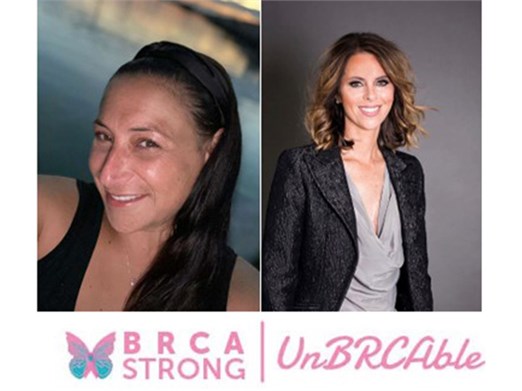Weight Gain Chemotherapy Treatment
How can you maintain or lower your weight once you’ve had chemo?
 Has this unfair side effect of breast cancer treatment happened to you?
Has this unfair side effect of breast cancer treatment happened to you?
If you ask most people to describe a person who is dealing with cancer, they might say something like “thin and gaunt.” And if you have struggled with your weight prior to diagnosis, you may think you’ll lose weight during treatment. While you wouldn’t necessarily call this a benefit, you may hope the experience will at least help you shed some unwanted pounds.
But the reality is that you may actually start looking more cherub-like, due to the steroids, the hair loss, and the chemical cocktails you take for treatment. It is typical for women going through chemotherapy to gain weight. And it seems absurd that, at a time when life is already being unfair, this undesirable side effect should be added to the mix.
On average, women undergoing chemotherapy for breast cancer will gain between five and eight pounds. Obviously, some women gain less (or even lose weight) and some women gain more (as much as 25 pounds over their pre-treatment body weight).
After struggling through breast cancer, battling weight gain can be highly distressing. Since our culture places such a high premium on physical appearance, this comes at a time when you may already be feeling less self-confident than usual – and your body image may be suffering as a result.
Additionally, you may feel real concern about how these extra pounds are going to affect your ability to stay cancer free. Research has found that survivors who are overweight or obese are more likely to have their cancer recur than thinner survivors.
It’s believed that since fat cells in the body make small amounts of estrogen, the more fat cells you have, the more estrogen is present. Since estrogen nourishes some types of breast cancer, this is a risk factor. Belly fat appears to be more detrimental than fat around the hips or thighs.
Why do we gain weight from chemo?
There may be many factors at work. Not only can your diet affect your weight, but the medications you are taking, the amount of exercise you are getting (or not getting), and changes in your metabolism all play a role.

Although chemo may make you feel nauseous much of the time, it may also cause you to crave comfort foods like pasta, bread, rice, and mashed potatoes. And these carbohydrate-laden choices can pack on the pounds, especially if you can’t exercise. It’s more difficult to jog or work out when you feel the fatigue, nausea, and pain often associated with treatment. In fact, many women find their activity level dropping even further because they often have to cut back even on light activities like housework.
The premature menopause chemo often causes may also contribute to weight gain. Menopause creates changes in your lean muscle/body fat balance, as well as slowing your metabolism. Although menopause does not necessarily mean you’ll gain weight, it does make it more difficult to prevent.
Tamoxifen has also been thought to increase weight gain, but there isn’t enough scientific research to support this belief. In fact, two large clinical studies failed to find a link between Tamoxifen and weight gain. It may simply be that many women taking Tamoxifen are also going through menopause (or have gone through menopause) so the weight simply comes with the territory.
It is not unusual for people taking steroids during chemotherapy to experience water retention, which can also lead to weight gain. Although this is usually only temporary, follow a few simple precautions if you discover you are retaining fluid:
- Elevate your feet as often as possible
- Don’t stand for long periods of time
- Avoid tight clothing
- Try not to sit with your legs crossed
- Reduce your salt intake
- Weigh yourself daily
Get proactive: What can you do?
Most oncologists will tell their patients that trying to lose weight during chemotherapy is not necessarily a good idea for several reasons. Most importantly, it’s unwise to deprive your body of essential nutrients at a time when it’s already under incredible stress.
 It probably goes without saying, but we’re going to say it anyway – this is not a time to go on any sort of fad diet. Your body and immune system are already stressed out. You need to be even more mindful than usual about what you are putting into it.
It probably goes without saying, but we’re going to say it anyway – this is not a time to go on any sort of fad diet. Your body and immune system are already stressed out. You need to be even more mindful than usual about what you are putting into it.
As a rule of thumb, avoid diets that ask you to completely avoid a specific food group. That simply isn’t sound science, and can actually be harmful.
Make sure you don’t fall prey to foods and supplements being sold under the guise of “Preventing Cancer.” It seems every other day there is some new “miracle food,” full of antioxidants and bioflavonoids. If only it were that simple.
A diet high in fruits, vegetables, and whole grains that pays attention to the amount of fats consumed, may be a start. There is an added benefit: Eating this way is heart healthy, and since heart disease kills more women than breast cancer, it’s probably a good idea to be heart smart as well!
While you’re monitoring your carbs (and we’re talking unhealthy carbs here like white bread, white rice, white pasta, refined sugar and the like), you should also be finding ways to add protein to your daily routine.
A recent study discovered that when you follow a protein-rich eating plan and combine it with exercise, the two work together to help you lose weight. Not only that, but people following this sort of pattern lost fat, not muscle, when they began to shed the pounds.
Exercise is absolutely necessary if you want to lose weight. Something as simple as walking around the block will make everything—body, mind, and spirit -- feel better. Even if you dread exercise, starting simply is a critical part of recovery and weight management. When you factor in that being more physically active can also help fight off a recurrence, it really is a no-brainer.
If you still need motivation, a support group can be a great help. Talking with other women who have faced a similar situation is always of benefit; maybe you can find a workout partner to encourage you.
Finally, keep perspective: It’s normal to worry about your weight if it’s going in the wrong direction, but giving this matter too much emphasis at a time when your energy needs to be put toward healing, just doesn’t make sense. Feel free to channel Scarlett O’Hara and tell the world, “I can’t think about that right now. If I do, I’ll go crazy. I’ll think about that tomorrow.”







